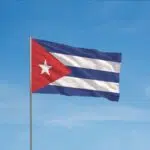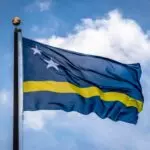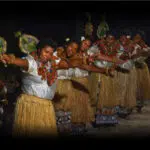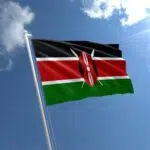Huduma Day, formerly known as Moi Day, is a Kenyan holiday celebrated on October 10 every year. Although this festival is relatively new to the calendar of this East African country, its significance is linked to the life and reign of one man. It wasn’t uncommon for rulers to institute special regulations and set a day to remember their legacy back in the day and, in the case of former Kenyan President Daniel Torotich Arap, his legacy was also worthy of commemoration. So, to mark his coming to power after the death of founding president Jomo Kenyatta, Arap designated October 10 as Moi Day. However, when the country’s constitution continued to be amended regularly, the administration felt it was time to reconsider what Moi Day truly signified. This resulted in the holiday being renamed Huduma Day.
History of Huduma Day
Moi Day was initially removed from Kenya’s list of holidays by the time the current Kenyan constitution was enacted in August 2010. It wasn’t restored until a landmark judicial judgment by Kenya’s Supreme Court in 2017. Instead of removing the holiday from the Kenyan calendar, the judge ruled that it should be renamed and given a new significance.
Following the judgment, Moi Day was renamed Huduma Day. The new name is Swahili for ‘service,’ which reflects the holiday’s new spirit, and the holiday has been honored in Kenya since it was reintroduced in 2017.
Interestingly, the former president was an active participant in the decision-making process for the new holiday. Moi asked that the unique day be remembered as a day of service to the people. His key message was that Kenyans should pray to promote national unity, cohesion, social fairness, and long-term development.
Huduma Day is celebrated today in Kenya with activities that encourage community development. The Kenyan government uses the occasion to highlight the benefits of sustainable development, from statewide prayer services to community development projects.
Huduma Day timeline
The New Kenyan Constitution is enacted and Moi Day is scrapped.
Moi Day is reinstated as a national holiday.
Moi Day is renamed Huduma Day.
Huduma Day is renamed Utamaduni Day in December.
Huduma Day FAQs
Is Diwali a holiday in Kenya?
Diwali is an optional holiday.
What is Kenya famous for?
Kenya is famous for its vast wildlife preserves and scenic landscapes.
What religion is practiced in Kenya?
85.5 percent of the total population is Christian and 11 percent Muslim.
How to Observe Huduma Day
Visit Kenya
Visit the Republic of Kenya and participate in the community development activities that are typically carried out on this day. Citizens are encouraged by the Kenyan government to attend prayer sessions on this day to create unity.
Volunteer for community development activities
If you are unable to attend Huduma Day in Kenya, you could help with community development projects in your region. The most important aspect of the day is ensuring participation in activities that can positively affect community development.
Enjoy a Kenyan cuisine
Huduma Day is an excellent opportunity to enjoy a couple of excellent Kenyan cuisine. Ugali (Cornmeal) resembles polenta (Italian raw cornmeal) and is so popular in Kenya that it is often referred to as the country's national dish.
5 Fascinating Facts About Kenya
A land of snakes
Kenya is home to well over 120 species of snake.
Agricultural products are the country’s largest export
Although tea and coffee have been Kenya's most important exports since the 19th Century, fresh flowers are rapidly becoming a prominent Kenyan export.
Home to the Mara River
The Mara River flows through Kenya and serves as a significant migration route for millions of wildebeest and zebras.
Home to the ‘Big Five’
The 'Big Five' African game species, namely the lion, leopard, buffalo, rhinoceros, and elephant, can be found in Kenya, particularly in the Masai Mara.
Home to the second-highest mountain
Mount Kenya is the second-highest in Africa after Mount Kilimanjaro.
Why Huduma Day is Important
It’s a day dedicated to the people
Huduma Day has taken on new significance for Kenyans because it was given a new meaning. It provides an opportunity for everyone to pause and consider how they may positively affect community growth.
It’s regarded as a holy day by Kenyans
This special day is typically viewed as sacred and a time for somber meditation because it is commemorated as a day of service to the people. On this day, the Kenyan government frequently declares national prayer sessions, and significant activity is halted.
It encourages unity
This day brings Kenyans together, especially during the community activities and prayers held on this day. It helps to bring about sustainable development for present and future generations.
Huduma Day dates
| Year | Date | Day |
|---|---|---|
| 2025 | October 10 | Friday |
| 2026 | October 10 | Saturday |
| 2027 | October 10 | Sunday |
| 2028 | October 10 | Tuesday |
| 2029 | October 10 | Wednesday |
























